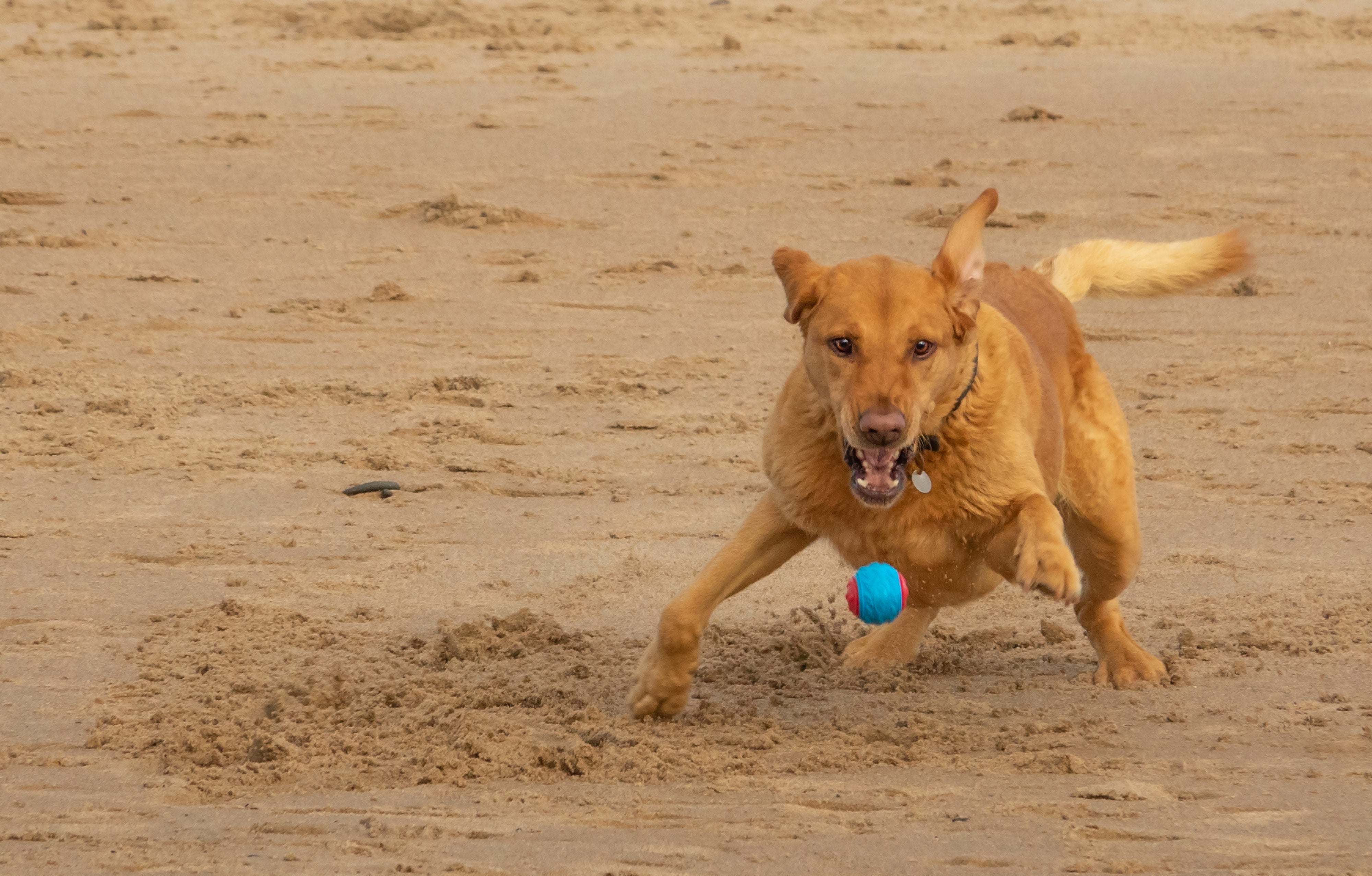Why Playtime is Important: Understanding the Benefits of Play for Your Dog's Health
Playtime is an essential part of your dog's physical and mental well-being. Here are some reasons why playtime is important for your furry friend:
Exercise: Regular playtime provides your dog with much-needed exercise, which is important for maintaining a healthy weight and reducing the risk of health problems such as obesity and heart disease.
Mental stimulation: Playtime also provides mental stimulation for your dog, which is important for keeping their mind active and engaged. Mental stimulation can also help prevent behavioural problems such as destructive chewing or excessive barking.
Bonding: Playtime is a great opportunity to bond with your furry friend. Spending time playing with your dog can help strengthen your relationship and build trust between you and your dog.
Socialisation: Playtime can also provide opportunities for your dog to socialise with other dogs and people, which is important for their social development and overall well-being.
By incorporating playtime into your dog's daily routine, you can help ensure that they stay happy, healthy, and well-adjusted.
Types of Play: Finding the Right Activities for Your Dog's Personality and Energy Level
Every dog is unique, and different dogs may enjoy different types of play. Here are some types of play that you can consider for your furry friend:
Fetch: Many dogs love to play fetch, which involves throwing a ball or toy and having your dog retrieve it. This is a great way to provide exercise and mental stimulation for your dog.
Tug-of-war: Tug-of-war is another popular play activity for dogs, which can help build strength and improve their teeth and jaw health.
Hide-and-seek: Hide-and-seek is a fun game that can provide mental stimulation for your dog. Hide treats or toys around the house or garden and encourage your dog to find them.
Agility training: If your dog is high-energy and loves to run, agility training can be a great way to provide both physical and mental stimulation. Agility training involves setting up an obstacle course for your dog to navigate.
By experimenting with different types of play, you can find the activities that your dog enjoys the most and incorporate them into your daily routine.
Making Time for Play: How to Incorporate Playtime into Your Daily Routine
Incorporating playtime into your dog's daily routine doesn't have to be complicated or time-consuming. Here are some tips for making time for play:
Schedule playtime into your day: Set aside time each day for playtime with your furry friend. This can be as little as 10-15 minutes a day, but regular playtime is important for your dog's overall well-being.
Use playtime as a reward: Use playtime as a reward for good behaviour or completing a training session. This can help reinforce positive behaviour and encourage your dog to look forward to playtime.
Make use of toys and puzzles: Toys and puzzles can be a great way to provide mental stimulation for your dog. Leave out a puzzle toy filled with treats or toys for your dog to play with while you're away from home.
Get the whole family involved: Playtime is a great opportunity to spend time with your furry friend as a family. Get everyone involved in playing with your dog to help build a stronger bond.
By making playtime a priority in your dog's daily routine, you can help ensure that they stay happy, healthy, and well-adjusted. Remember, playtime should be a fun and enjoyable experience for both you and your furry friend.
Toys and Games: Choosing the Right Tools for a Fun and Engaging Playtime
Choosing the right toys and games can make playtime even more enjoyable for your furry friend. Here are some tips for choosing the right tools for a fun and engaging playtime:
Consider your dog's preferences: Different dogs have different toy preferences. Some dogs may prefer soft toys, while others may prefer harder toys for chewing. Observe your dog's play habits to determine what types of toys they enjoy the most.
Choose durable toys: Dogs can be tough on their toys, so it's important to choose toys that can withstand some rough play. Look for toys that are made of durable materials and can stand up to your dog's chewing and playing.
Rotate your dog's toys: To keep playtime fun and engaging, it's a good idea to rotate your dog's toys regularly. This can help prevent boredom and keep your dog interested in their toys.
Use interactive toys: Interactive toys, such as puzzle toys or treat-dispensing toys, can be a great way to provide mental stimulation for your dog during playtime. These toys can help keep your dog engaged and entertained for longer periods of time.
By choosing the right toys and games, you can make playtime even more enjoyable for your furry friend.
Playtime for Special Circumstances: How to Keep Your Dog Active and Happy During Challenging Situations
Even in challenging circumstances, it's important to keep your dog active and engaged. Here are some tips for keeping your dog happy and healthy during special circumstances:
Playtime for older dogs: Older dogs may have different playtime needs than younger dogs. Consider choosing toys that are softer and easier on their teeth, and incorporating more gentle playtime activities such as short walks or gentle play sessions.
Playtime for anxious dogs: Dogs with anxiety may find playtime stressful. Consider using calming toys or activities, such as puzzle toys or gentle massages, to help your dog relax during playtime.
Playtime during hot weather: Dogs can easily overheat during hot weather, so it's important to take precautions during playtime. Avoid playing outside during the hottest parts of the day, and make sure to provide plenty of water and access to shade.
Playtime during recovery: Dogs recovering from illness or injury may have limited mobility. Consider using gentle playtime activities, such as short walks or simple puzzle toys, to help keep your dog active and engaged during their recovery.
By adapting playtime to special circumstances, you can help keep your dog active and happy no matter what challenges may arise. Remember, playtime should always be a fun and enjoyable experience for both you and your furry friend.



